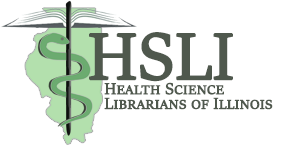(via Dr. Tim Schlak, Robert Morris University)
We are seeking contributions for a new book on The Social Future of Academic Libraries building on our panel session at ACRL 2017 viewing libraries through the lens of intellectual and social capital.
Our point of departure is the current focus in college and university libraries on engagement, partnerships, community development, and social relations. The social turn in academic librarianship requires new ways of working and new ways of thinking about the resources, services, and capabilities of the library and information workforce. Intellectual capital perspectives and social network theory can help librarians understand the demands of the current environment and develop effective responses for their communities.
The book is co-edited by Tim Schlak, Sheila Corrall, and Paul Bracke, and will be published by Facet Publishing. It will have three parts:
Part 1 will introduce the relevant theoretical, conceptual, and methodological frameworks;
Part 2 will explore the application of intellectual capital and social network theory to libraries as social organizations, and show how they can use the models and tools presented to evaluate and strengthen strategy, collaborations, leadership, and other aspects of library performance;
Part 3 will focus on implications for library policy and practice, professional education, and research.
Parts 1 and 3 will primarily be authored by the editors. The focus of our call for proposals is on Part 2. We are particularly interested in receiving proposals for chapters that discuss and illustrate the practical application of intellectual and social capital theory and concepts, including social network analysis, to issues currently facing academic libraries and librarians. The target length for contributed chapters is around 5,000 words (excluding references).
Potential areas of application include, but are not limited to:
· strategic planning
· space design
· scholarly communication
· information behavior
· learner support
· library instruction
· academic liaison
· partnership formation
· relationship management
· community outreach
· organization development
· user experience
· service assessment.
We invite potential contributors to submit an abstract of 300-500 words, summarizing your proposed chapter, outlining your intended approach and structure, and indicating how it advances thinking and practice in the field. Please provide a working title for your contribution, up to six keywords highlighting the topics/issues to be discussed, and brief author bio (2-3 sentences) along with details of any related prior work.
The deadline for abstract submissions is now Thursday, January 31, 2019. Please send submissions as email attachments (Word or PDF files) by email to Tim Schlak at schlak@rmu.edu.
Prospective authors will receive feedback on their proposals by Monday, February 11, 2019.
Accepted authors must be able to submit complete chapters by Monday, April 29, 2019, to allow time for revisions and editing prior to submission to the publisher in June 2019.
We anticipate the book will be published in September 2019.
